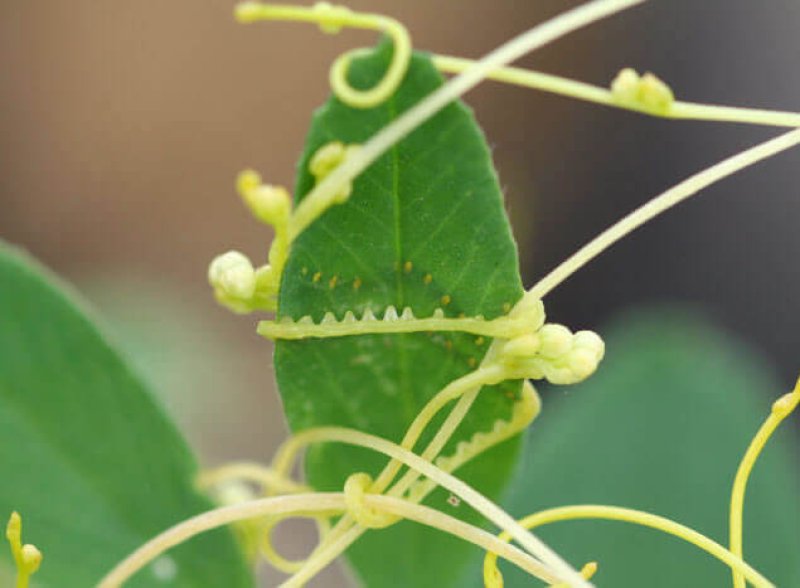A parasitic plant called dodder can silence the expression of genes in the host plants from which it obtains water and nutrients, new research suggests.
This cross-species gene regulation, which includes genes that contribute to the host plant’s defense against parasites, has never before been seen from a parasitic plant.
Understanding this system could provide researchers with a method to engineer plants to be resistant to the parasite. Dodder causes major damage to crops in the US and worldwide every year.
…
“Dodder seems to turn on the expression of these microRNAs when it comes into contact with the host plant,” says James H. Westwood, professor of plant pathology, physiology, and weed science at Virginia Tech and [a co-author] of the paper. “What was really interesting is that the microRNAs specifically target host genes that are involved in the plant’s defense against the parasite.”
…
“So, with this knowledge, the dream is that we could eventually use gene editing technology to edit the microRNA target sites in the host plants, preventing the microRNAs from binding and silencing these genes. Engineering resistance to the parasite in this way could reduce the economic impact of the parasite on crop plants,” [says study co-author Michael J. Axtell, professor of biology at Penn State].
The researchers report their findings in the journal Nature.
Read full, original post: This parasitic plant hijacks its victim’s genes































